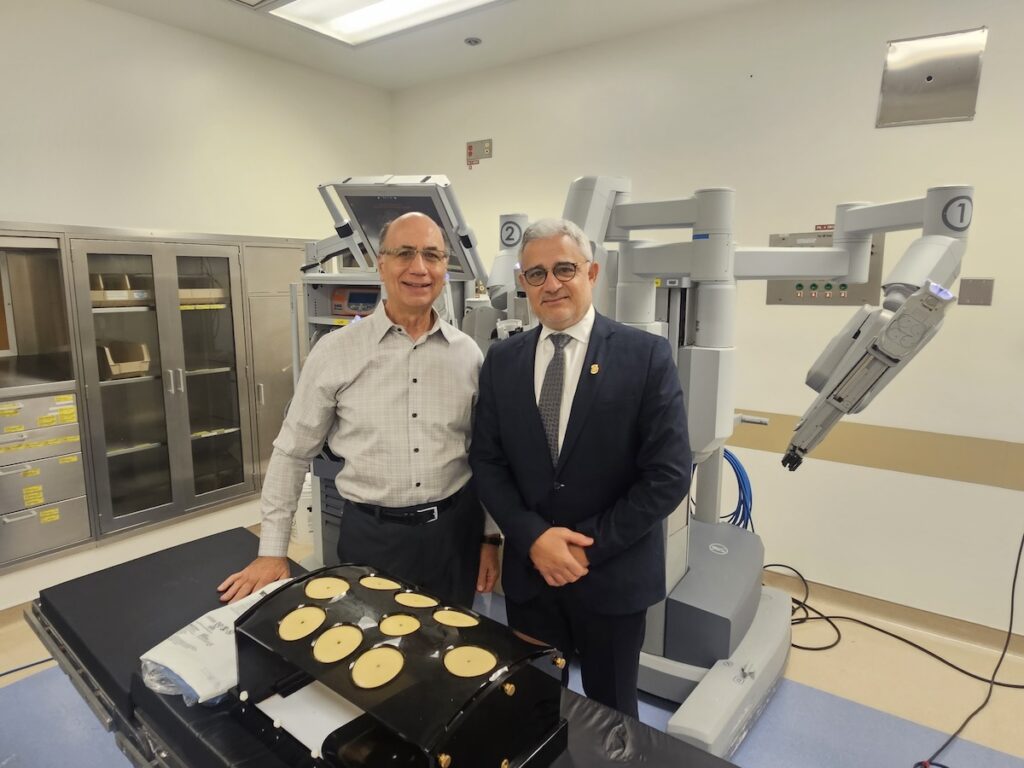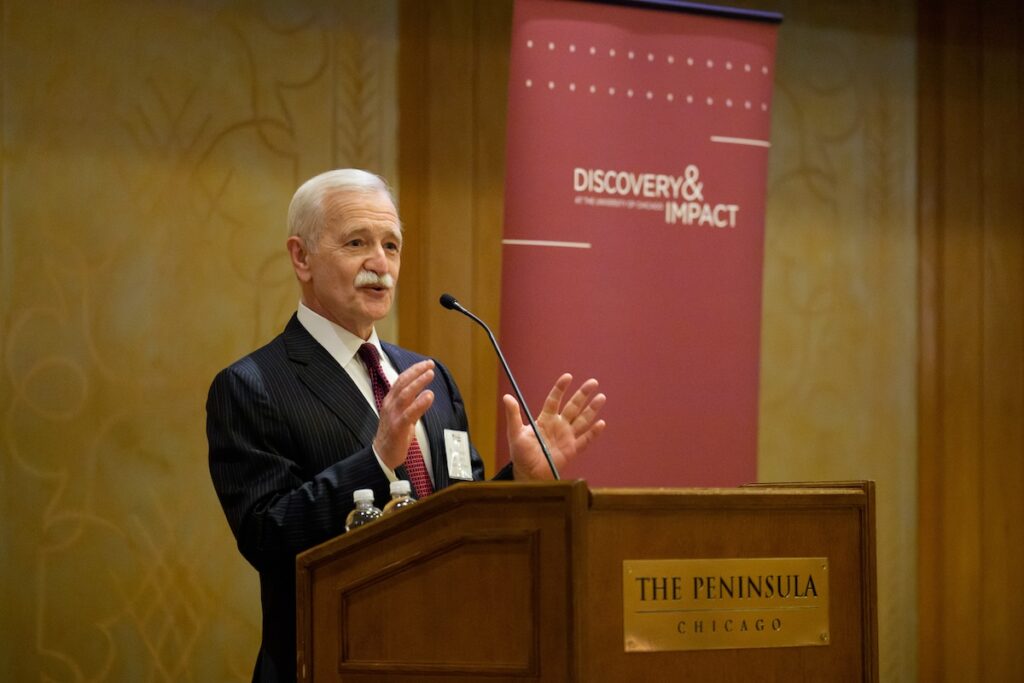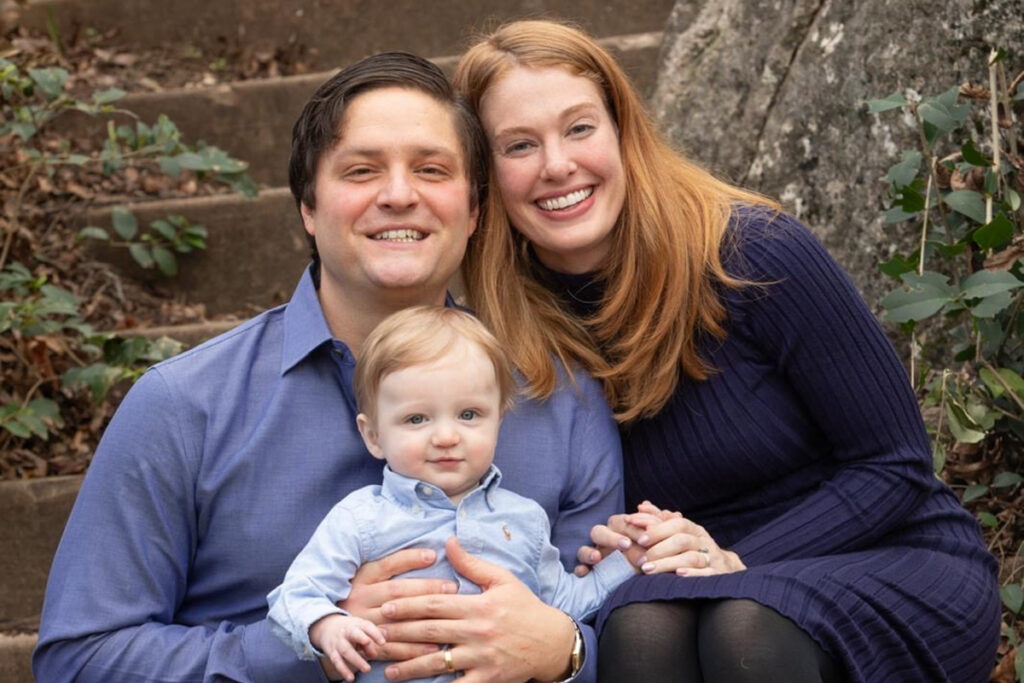Mindy and Jon Gray, founders of the Gray Foundation, prioritize high-risk, high-reward research projects, or as Executive Director Dana Zucker puts it, “funding early, innovative work.” Oftentimes, she explains, “that’s the space where the breakthroughs happen.”
PREcision DIabetes ConsorTium (PREDICT), a collaboration between the University of Chicago’s Data for the Common Good and UChicago Medicine Kovler Diabetes Center, is one such research project.
Data for the Common Good had its origin over a decade ago in an Excel spreadsheet containing de-identified data from 10,000 patients diagnosed with neuroblastoma, a cancer commonly affecting young children. Prominent University of Chicago Medicine pediatric cancer specialist and researcher Susan Cohn, MD, saw potential to share neuroblastoma data with other groups and lower barriers to research.
“It is all about building communities and sharing data,” said Samuel Volchenboum, MD, PhD, a UChicago Medicine pediatric cancer specialist, research informatics officer, and director of Data for the Common Good. “Our mission is to increase access to research data everywhere and to provide a service to anyone in the world who wants to study rare diseases. We give them a place, method, and means to help aggregate and share their data,” Volchenboum said. “The more data we have, the more people we can help, and the more profound our worldwide impact.”
PREDICT is a concentrated effort to fully understand monogenic diabetes, a rare form of diabetes that accounts for less than five percent of all cases in the US. Louis Philipson, MD, PhD, James C. Tyree Professor of Diabetes Research and Care, said, “We realized our own databases only go so far in understanding the full aspect of this unusual form of diabetes. While we’ve identified roughly 1,500 people with known cases of monogenic diabetes, we’re at a crossroads trying to make headway and we need to have many more groups involved.”
Michael McCullough, who is the project manager of PREDICT, explained, “Many institutions collect data on these patients. No institution has sufficient quantity of data to answer important research questions. You really need to combine resources.”
“Data for the Common Good,” Philipson said, “will give us the structure that we need to do this work. The potential for international collaboration will multiply our ability to understand how these genes work and identify appropriate treatments.”
“The Grays are inspired by Dr. Philipson and by UChicago’s outstanding leaders and their teams,” Zucker said. “Their willingness to collaborate and share their learning resonates strongly with the Grays. UChicago is ideally poised to create a tool that will serve as an example of what is possible in the world of genetics and better outcomes for individuals. We are at a moment where we are going to see progress unlike any we have seen before.”
“As we think about building the commons, or data infrastructure,” said Volchenboum, “one of the most important things we do is sit with researchers and ask, ‘What could you do if you had access to an enormous set of data? What are the questions you can’t answer now?’
A dozen participating universities have communicated their intent to share data and pursue research that will make use of the data.
“What makes this even more impressive is that this is all being done on a volunteer basis; they are so excited about this project that they are doing it on their own time outside of their clinic duties,” McCullough said.
“We’re at the beginning,” emphasized Lisa Letourneau-Freiberg, research director at UChicago Medicine Kovler Diabetes Center. “It’s meticulous, but important work. All of which will become the foundation of a tool that allows people to search a rich database, present research questions, extract the data, and author papers. This upfront work is so critical to its success.”
All parties acknowledge that PREDICT would not be possible without the Gray Foundation’s support. “The project would not exist,” McCullough succinctly said.
According to Zucker, the Gray Foundation sees the vast potential in PREDICT and Data for the Common Good, and lauds their longstanding relationship with UChicago Medicine. “We are able to support work that resonates with us given our focus on collaboration, using data, and creating something that continues to proliferate and will be a tool for all,” she said.




